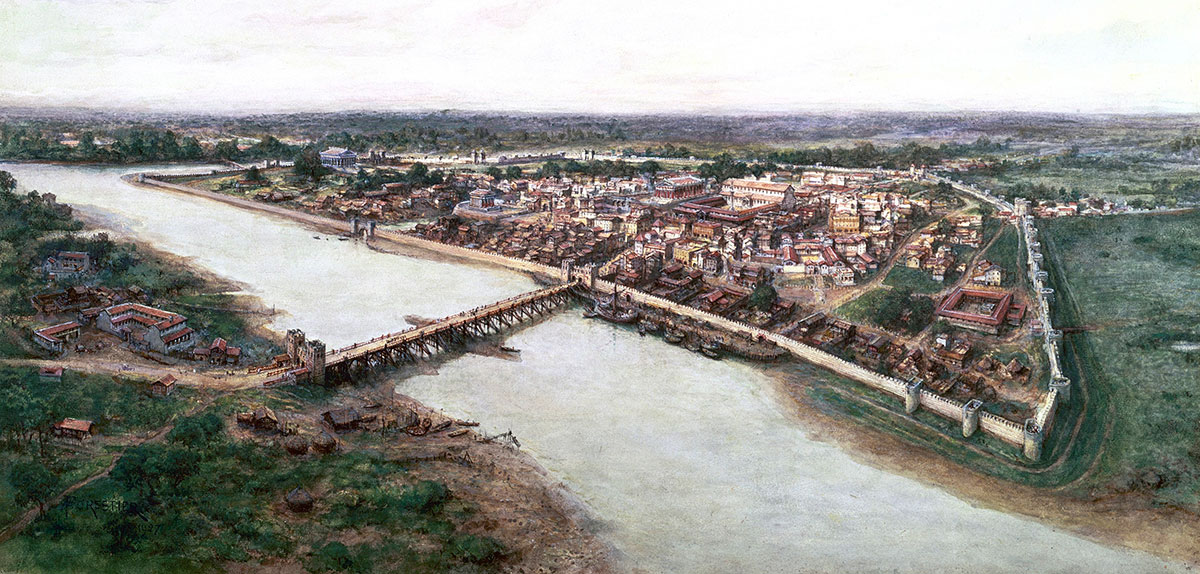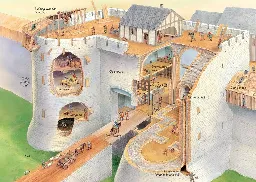Those troops there waiting for the bridge to be ready are going to have to wait for a while longer
Timeless military tradition of “Hurry up and wait”
More seriously, those boys will probably be the ones building the bridge once the brass are done talking with the locals. The Roman legions spent at least as much time doing construction and engineering work as fighting!
Yo, are these lads civilising London/Londinium?
Solid effort.

Edit: nvm, idk why my brainhole defaulted to a hilly London - it’s lake Geneva (28th March, 58 BC).
That’s a gorgeous drawing! You should put it as its own post too, it deserves to be seen!
even with modern technology it is hard for me to imagine how it’s done… How did the romans do bridges like that?
A lot of timber piles would be driven into the river bed by pulling up and letting go of a giant boulder onto the top of the pile. Once the timber piles were set, they could then build a wooden bridge deck on top.
It wasn’t a permanent bridge and the Romans would usually destroy their bridge after they no longer needed it.
It wasn’t a permanent bridge and the Romans would usually destroy their bridge after they no longer needed it.
Minor note: on campaigns in permanently hostile territory, yes, to deny the enemy a means of retaliation, but many wooden bridges served for hundreds of years in conquered territory after being constructed. Bridges were a great way of controlling and monitoring civilian traffic, after all!
Here’s an animation of how it was done (in at least one case) in medieval times: https://www.youtube.com/watch?v=nJgD6gyi0Wk
I imagine Romans coulda done something similar for permanent stone bridges. The one in the illustration looks temporary.


